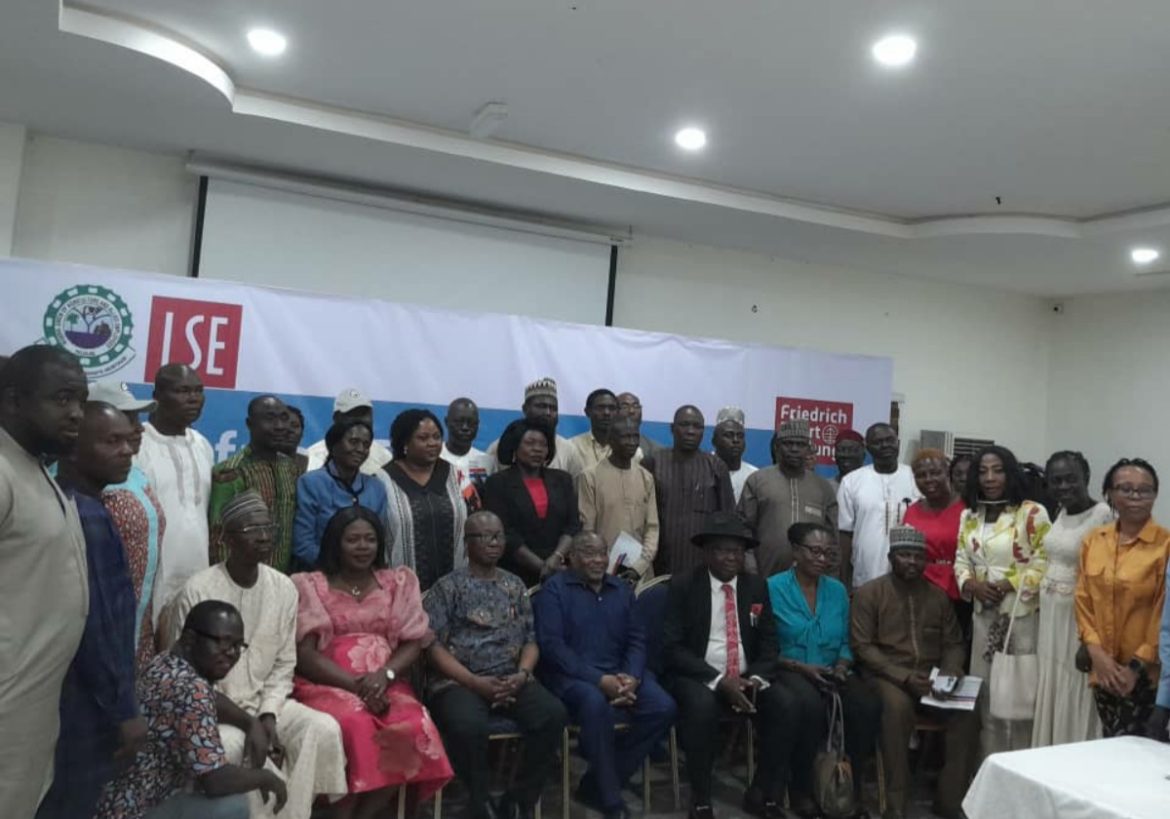By Lucy Ogalue
The Friedrich Ebert Stiftung (FES) Foundation says African governments must prioritise value addition and agricultural subsidies as strategic measures to reduce food insecurity and build resilient economies.
Mr Lennart Oestergaard, Resident Representative of FES Nigeria, said this during an Exchange with the Nigerian Union of Agriculture and Allied Employees (NUAAE) on the book “How Africa Eats” on Monday in Abuja.
The book which focused on Trade, Agriculture, and Food Security in Africa, examines the intersection between agricultural productivity, trade policy and sustainable development across African countries.
Oestergaard said the report was developed to guide evidence-based policymaking that supported farmers, promote food sovereignty, and enhanced intra-African trade.
“Our findings showed that Africa’s food insecurity stems not only from production shortfalls, but also from the way we trade and process our produce.
“Africa must move from exporting raw materials to exporting processed goods that retain value and create jobs.”
Oestergaard reaffirmed FES’s commitment to supporting research and dialogue that connect trade unions, policymakers and the private sector towards sustainable and equitable food systems.
“Food security is not only about feeding people; it’s about empowering them. Africa must design policies that ensure dignity, resilience and prosperity for every farmer,” he said.
The President of NUAAE, Mr Tajoudeen Baba, represented by his Financial Secretary, Dr Agha Ukpai Agha, welcomed the FES study and commended its contribution to ongoing policy debates on food security.
Baba said NUAAE was encouraged by the focus on agriculture and its central role in national development, urging stakeholders to adopt practical measures that protect farmers’ livelihoods and enhance local food production.
“We are here to stress that agriculture remains the backbone of our food systems and rural economies.
“Policies must translate into concrete support mechanisation, rural infrastructure, affordable credit and social protection for farm workers if we are to close the gap between production and demand,” he said.
He reiterated the union’s readiness to partner with research institutions, development organisations and government to promote labour-friendly agricultural policies and to ensure that farm workers benefit from programmes aimed at boosting productivity.
Prof. David Luke, the report’s lead researcher and trade policy expert, said the study highlighted how limited investment, weak intra-African trade links and insufficient industrial capacity have continued to undermine the continent’s agricultural potential.
Luke said that while the African Continental Free Trade Area (AfCFTA) offered opportunities for agricultural transformation, its success depended on the ability of governments to align trade policies with domestic food production strategies.
“Africa can no longer afford to import what it can produce.
“We must strengthen regional value chains, promote agro-processing, and provide incentives for farmers to produce more efficiently and competitively.
“The report noted that Africa spends billions of dollars annually importing food items that could be produced locally, underlining the need for targeted subsidies, investment in processing facilities and stronger market linkages,” he said.
Mr Abdul Kabul, FCT Chairman of NUAAE reiterated the need for synergy between the Ministries of Agriculture and Water Resources to boost dry-season farming and ensure sustainable irrigation development.
He cited the World Bank-supported Transforming Irrigation Management in Nigeria (TRIMING) project as a model that addressed farmers’ challenges in power supply and access to water.
He said that insecurity, drought, erosion and desert encroachment had continue to threaten productivity and must be tackled for Nigeria to attain food security and reduce imports.
Dr Ute Akpan, FCT Auditor of the organisation emphasised the importance of funding in agricultural development, warning that inadequate financing undermines productivity and self-reliance.
He called for policies that would reduce over-dependence on foreign systems and allow African nations to solve their agricultural problems independently.
Also, Dr Raheem Akolawole, National Agricultural State Council Branch Chairman of NUAAE, described agriculture as not only a source of nutrition but a foundation for economic resilience and sustainability.
He called for increased investment in research, seed quality and funding for students and institutions to strengthen food production.
Akolawole called for sensitisation of farmers on good agricultural practices to avoid recycling poor-quality seeds, which reduces yield and profitability. 1

